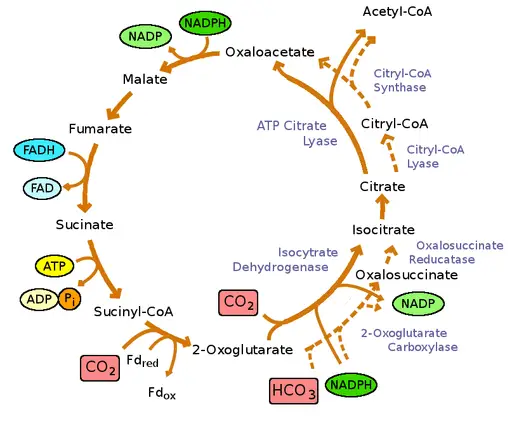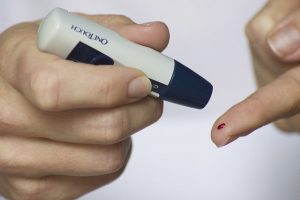Biochemistry is an essential subject for medical, nursing, and pharma courses, as well as for those attending exams like the USMLE and MCAT.
The subject is limited and is concerned with biomolecules in our body.
If you can understand its components, the subject gets easier.
- Bioenergetics
- Carbohydrates
- Proteins
- Lipids
- Nucleic acids

1. Bioenergetics
- Bioenergetics helps one understand how energy is formed in the body through the transfer of free energy.
- This transfer of energy occurs from carbohydrates to Adenosine diphosphate, which gets converted to ATP (adenosine triphosphate)
2. Carbohydrates
This, as the name indicates, describes the structure of carbohydrates, their source, metabolic breakdown, and their excretion out of the body.
3. Proteins
Here, different types of amino acids, proteins, and their structure are discussed. Further, the role of amino acids and proteins, their metabolism, and excretion are covered.
4. Lipids
Different types of lipids and their chemistry, like fatty acids, synthesis pathways, metabolic breakdown, and excretion, are described.
Further, one can learn about the role of lipids in the body.
5. Nucleic acids
This defines the structure of RNA and DNA. The chemistry of nuclear bases, their formation, breakdown, and excretion.
Additionally, it covers vitamins, enzymes, and hormones
To study biochemistry better
- Understand the concept
- See the role of the topic.
- Do not miss the laboratory classes.
- Remember the Terminology
- Categorize the basic molecules
- Practice derivations (Remember the first and last substance of any reaction.)
- Try to take in practical aspects into account into account.
So here are a few tips from my personal experience on how to study biochemistry.
During my graduation, I was taught human and clinical biochemistry.
It was my favorite subject, as it is interesting and also quite challenging to master.
But if you start liking it, it will be one of your favorites as it deals with our own body physiology at the molecular level.
The Biochemistry course, as you might have noticed, will have the following.
- Bio-molecules
- Chemical reactions.
- Derivations.
- metabolic Pathways
- Formulas
- Graphical diagrams. etc., are all related to body functions.
How to study biochemistry effectively
Understand the concepts
Biochemistry, as we know, is a subject of science. Hence, we need to understand its concepts and not just mug it up.
The subject covers aspects of carbohydrates, proteins, fats, nucleic acids, and their role in the body.
So, we need to understand their source, formation, metabolism, and excretion from the body.
This makes it easier to remember and write well in exams. Further, understanding the need helps us to think of its applications during practice.
The general concepts include glucose metabolism, glycogen synthesis, fat synthesis, protein metabolism, nucleic acid synthesis, etc. So, if we go on to mention the concepts, it gets limited. There are only a fixed number of concepts in biochemistry to run physiology and life. Unlike biology or chemistry, it is not unlimited or infinite.
The scope and extent of biochemistry.
Biochemistry has a wide scope, ranging from plants and microbes to higher animals.
It explains the biomolecules like enzymes, carbohydrates, toxins, and electrolytes in the living body.
So, knowing biochemistry will help you know the applications in medicine, research, the environment, food, and other aspects.
Attend laboratory classes.
Experiments like the test for carbohydrates, proteins, blood glucose, cholesterol, creatinine, and urine components are performed in the lab. These experiments help you understand the subject in terms of physiology and pathology.
Understand the terminology
Biochemistry has many terminologies in use. These terminologies are specific. Understanding the terminology gives us an idea of what the concept is about.
For example, Glycogenesis means formation of glycogen (Glycogen+ genesis). This occurs in the liver from excess glucose under the influence of hormone insulin.
There are few enzymes involved in the glycogenesis pathway. So, they have related terminology like “glycogen synthase.” This means the enzymes are involved in the synthesis of glycogen.
Gluconeogenesis = formation of glucose from non-carbohydrate sources like amino acids, proteins, and fats. (Gluco=glucose, neo=new or non-carbohydrate, genesis=formation)
Thus, understanding terminology helps you avoid confusion in biochemistry.
Categorize the basic molecules
You should know the basic molecules in biochemistry if you want to be an expert in it.
Biochemistry deals with only a limited number of biomolecules in humans.
These include carbohydrates, proteins, fats, vitamins, nucleic acids, and their metabolites with corresponding enzymes.
So, if one is clear with biomolecule synthesis, metabolism, and excretion, the biochemistry study will be complete.
Hence, it is important for you to know the basic molecules, their structure, and their physiology in the body for an easier approach to learning biochemistry.
Besides, these basic molecules are formed in different pathways. So, these pathways will be less confusing if you understand their role and function in the body.
Practice derivations
Derivations are key pathways that describe the synthesis of molecules or their breakdown.
For example, the synthesis of cholesterol in the body occurs from stigmasterol. This is a cyclic ring structure that involves many changes during synthesis.
These derivations involve step-by-step changes to molecules in the presence of supporting enzymes and ATP (adenosine triphosphate). Derivations, either big or small, should be understood incompletely and also practiced.

I once understood the whole pathway and went for an exam. But during the exam, I was stuck halfway through the pathway of purine synthesis (adenine and guanine).
Though I understood the pathway well, I was stuck with the next step and could not proceed. So, I ended up with just the final steps of derivation.
It scored less, but with practice, it was avoided next time. So, the practice of derivations will help solve them in exams without problems.
Besides, if you remember the first and last substances in the pathway, it will be a lot easier to study.
Try to take practical aspects into account.
Whatever the reactions or topics we come across in biochemistry, they are related to our body functions. So, while studying, it is good to see the topics from a day-to-day perspective or in common health & disease conditions.
This will build up curiosity and help in a better understanding of the topic. Ultimately, we will be using it as a part of our career in practice. So, trying to correlate the biochemistry subject with natural and daily life will help us study better.

Besides the above tips, we need to have some clues to remember a few aspects. For example, the activated form of the enzyme is always in phosphate form. Isomerase enzymes will produce a molecule with the same chemistry as the parent molecule with a small change in hydrogen and oxygen moieties. reductase enzymes will remove oxygen or add hydrogen. oxidase will remove hydrogen or add oxygen.
Also, check out
2. How to study organic chemistry



Thank you very much that advices are so helpful
I wish that I’ll see new ideas to study other subjects ❤❤❤❤❤❤❤❤❤❤❤❤❤
I’m looking for info on the biochemical aspects of alcohol in the body and brain. Specifically the similarity of alcohol properties and solvents.